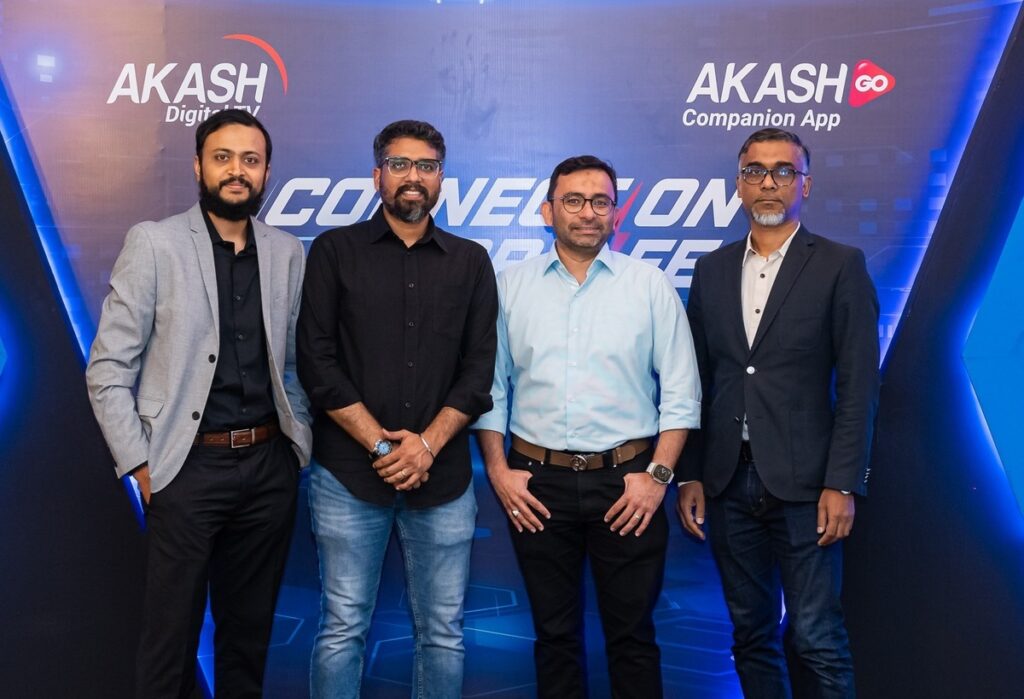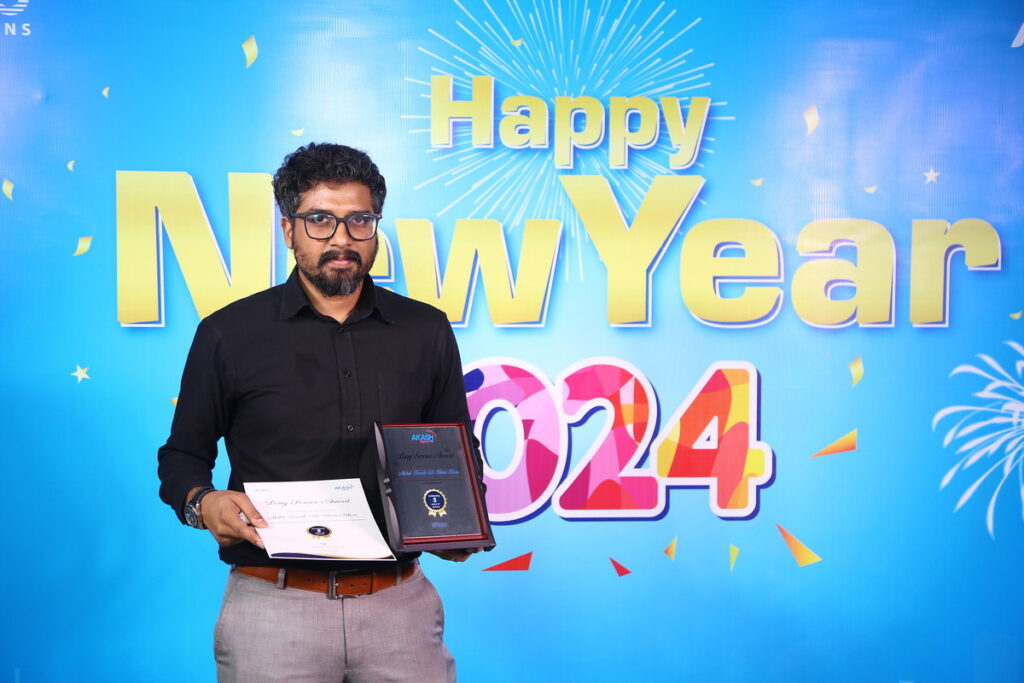Mohd. Tareek-ul-Islam Khan
Manager – Network Infrastructure, Technology
BEXIMCO Communication Limited
Mohd. Tareek-ul-Islam Khan is a seasoned Network Infrastructure Manager at BEXIMCO Communications Ltd. With over 12 years of experience in technology, he specializes in network and system administration, security, and disaster recovery. Holding a BSc in Electrical and Electronics Engineering from AIUB and an MBA in Marketing from Southeast University, he combines technical expertise with commercial insight. Khan has played a pivotal role in launching Bangladesh’s first Direct-to-Home (DTH) service, Akash DTH, and managing large-scale network projects. He is also an active mentor at Bangladesh Youth Enterprise Advice and Helpcentre (BYEAH).
Let’s learn about his journey.
The InCAP: Mohd. Tareek-ul-Islam Khan, please share your professional and academic peregrination for our readers!
Mohd. Tareek-ul-Islam Khan: I started my career early, during my 3rd semester at university. I completed my BSc in Electrical and Electronics Engineering from American International University-Bangladesh (AIUB) and later did my MBA in Marketing from Southeast University, Bangladesh. My career in technology has been defined by this blend of commercial and technical expertise.
With over 12 years of experience, I’ve worked in various roles related to network infrastructure, network and system administration, DC-DR operation and technology management. My career began at InfoLink Limited, it is a Nationwide ISP and a complete IT & Network Infrastructure solution company, where I managed their core Network System, IT infrastructure and the Technical Department. My first project was the network infrastructure solution of world’s third largest and biggest shopping mall in Asia Jamuna Future Park. I then moved to Beximco Communications Ltd. (Akash DTH), the first ever DTH service provider in Bangladesh. There, I took on major responsibilities in core network system, network security and server administration, played a key role in launching Akash DTH and setting up the network with Bangladesh’s first satellite BS-1, Bangladesh Satellite Company Limited.
Currently, as Manager of Network Infrastructure at Beximco Communications Ltd, I focus on core network & system administration, network security, IT operations, disaster recovery, and performance improvement for large projects. I work with a variety of network devices, security systems, virtual & cloud systems and both UNIX and Microsoft platforms. My goal is not just to keep networks running smoothly but also to align them with the company’s broader goals.
Apart from that I am working for an NGO, as a Mentor at Bangladesh Youth Enterprise Advice and Helpcentre (BYEAH) part of Youth Business International (YBI) and were active technical reviewer for IEEE and David Publishing Company, USA.
I’m always open to new opportunities for collaboration or sharing knowledge about technology. Feel free to reach out anytime and anywhere.

What has been your biggest challenge in managing network infrastructure at BEXIMCO Communication, and how did you overcome it?
I joined Beximco Communications in 2017, and my first assignment from my line manager was both challenging and crucial. I had to recover and restore all the credentials for the network infrastructure without interrupting ongoing operations. The catch? I had no prior documentation or clues to start with.
Step by step, I began by recovering the low-level network diagrams, identifying and covering each device systematically. The most stressful part was like the saying, “it’s easy to make a clay figure, but once it’s broken, it’s very tough to rebuild it.” Restoring everything from scratch, without disrupting the live system, was indeed a tough task.
In the Direct-to-Home (DTH) operation, or Pay TV industry, there are not only video encoding and broadcasting systems to manage but also many other critical components like the Subscriber Management System (SMS), Databases, Conditional Access Systems, ERP systems, and Sales & Field Operations. I had to create a secure and encrypted bridge between all these parts to ensure everything worked smoothly. This experience proved very helpful during the launch of Akash DTH, allowing me to maintain seamless operations throughout the process.
Another big challenge I faced was during complete internet shutdown period. In one part country experienced complete internet blackout, while on the other side country were under curfew, making it extremely difficult to manage operations. Since the entire system depends on network and internet connectivity, keeping core operations running was a real challenge. We had to establish a secure remote connection to gain full access to the system and manage all internal and external connectivity. Despite these obstacles, we successfully kept recharge systems, sales, and broadcasting operations running smoothly without any interruptions, which was a significant achievement.
This situation tested not only my technical abilities but also the coordination and resilience of the entire team. We had to think on our feet and implement solutions quickly while maintaining the highest standards of service. It strengthened my belief that success in the technology sector is about more than just technical knowledge—it’s also about adaptability, teamwork, and creative problem-solving in the face of unexpected crises.
How do you stay updated with the latest advancements in network infrastructure technology?
Staying updated with the latest advancements is crucial in the rapidly evolving field of network infrastructure.
To stay updated with the latest advancements in network infrastructure technology, I take some simple approaches. Firstly, I tried to read industry publications and subscribe to newsletters from leading technology companies. This helps me stay informed about recent trends, new innovations, and best practices. I also participate in online forums and communities where industry professionals discuss the latest developments. These platforms allow me to gain valuable insights from experts and contribute to conversations, learning from others’ experiences in real time.
Additionally, I attend conferences and webinars focused on technologies. These events provide a great opportunity to learn from experts, see new technologies in action, and network with peers.
Lastly, my best way to know about recent trend, I follow influential technology leaders on social media platforms like Youtube and LinkedIn. By doing so, I receive real-time updates and can engage in discussions on emerging technologies.
Despite all these efforts, keeping up with the rapid and vast advancements in technology is a constant challenge due to its fast-evolving nature.

Mr. Khan, Can you please describe a project where you optimized network performance while minimizing downtime?
One significant project I worked on was the migration of our data center during Cyclone Sitrang on October 24, 2022. The weather condition was a big challenge, but we had a plan to ensure a smooth transition with minimal downtime. Initially our planning was to move the data center in the middle of the month based on weather forecasts predicting that Cyclone Sitrang would arrive then. However suddenly, the forecasts changed, and it became clear that the cyclone would hit at the end of October. Unfortunately, during our planned migration date Cyclone Sitrang attacked, October 24, 2022 night. Our activity window was set from October 25, 2022, from 1:00 AM to 6:00 AM, and every step of the process was meticulously scripted and planned in advance.
Before the migration, we prepared the new data center by ensuring all necessary infrastructure was in place, including power, rack installation, and switching cabling. This preparation took approximately 21 days and involved room insulation, fire protection measures, security system installations, and rack layouts.
During the actual migration, we established an alternative link and systematically replaced secondary network devices before finally relocating the primary devices. This step-by-step approach allowed us to maintain network continuity. In total, we successfully completed the entire system migration within just five hours, ensuring all services were up and running without significant disruption.
This project not only showcased our ability to execute a complex migration under challenging conditions but also highlighted our commitment to optimizing network performance while minimizing downtime.
What key strategies do you employ to ensure network security and reliability in large-scale operations?
Ensuring network security in large-scale operations is crucial, as even a minor vulnerability can create a significant troubles and data breaches. A secure and well-maintained network infrastructure is essential for business continuity and protecting sensitive information. To achieve this, I prefer the following key strategies:
- Implementing Robust Firewall Systems: Firewalls control incoming and outgoing traffic, while Intrusion Detection Systems (IDS) intrusion prevention systems (IPS) help detect and prevent to potential threats in real-time, ensuring the network remains secure.
- Regular Patch Management and Updates: Both windows & Unix system and all live devices, such as servers and other network devices, keeping software and hardware up to date with the latest security patches is critical to closing vulnerabilities and maintaining network integrity. Initial prevention we can ensure from the build-in prevention plan.
- Network Segmentation: Dividing the network into smaller, secure segments limits the spread of attacks and helps protect critical assets by isolating them from less secure areas. Segmentation can also helpful internally. It can prevent all network collision and internal dependencies.
- Strong Access Control Policies: Implementing multi-factor authentication and role-based access control ensures that only authorized personnel can access sensitive systems, minimizing unauthorized access risks. It can also cover the password policy.
- Continuous Monitoring and Logging: Multiple network monitoring system should be used in network operation. Monitoring tools and logging systems provide real-time visibility into network activity, helping to detect anomalies and prevent potential security breaches.
- Regular Backups and Disaster Recovery Planning: Regularly backing up data and developing disaster recovery plans ensures that the network can be restored quickly in the event of a failure or breach.
- Security Training for Staff: Conducting regular security awareness training helps employees recognize threats like phishing attacks and encourages adherence to best security practices.

How do you handle scalability challenges in network infrastructure to accommodate growing demands?
As a Network Engineer, I handle scalability challenges by using a few key strategies to ensure the network can grow smoothly and meet increasing demands.
- Network segmentation: Implementing network segmentation to divide the network into smaller parts, which helps to reduce congestion and maintain performance as more users and devices connect. It can help to avoid any network collision.
- Load balancing: Use of load balancing to distribute traffic across multiple servers or devices, ensuring no single part of the network is overwhelmed. It can help optimizing network performance, faster response time, enable scalability and improving overall user experience in a network infrastructure.
- Network Monitoring: Network monitoring is essential for maintaining the health, performance, and security of a network. It enables quick detection of issues, informed decision-making, and improved overall reliability.
By using these methods, I can effectively manage the growing needs of the network without compromising its performance or reliability.
What are some of your hobbies, and how do they contribute to your personal well-being and growth?
I love music, traveling, and running. Doing music helps me unwind and stay creative, while traveling allows me to explore new places and cultures, which broadens my perspective. I’m also passionate about running and have participated in over 50 national and international marathon events, which keeps me physically and mentally fit.
Mohd. Tareek-ul-Islam Khan, please say something to the readers!
I consider myself a network artist. Every project I take on is like creating a new piece of art. Whether it is building a network or solving a problem, it is not just about getting the job done – it is about doing it with creativity and passion. It’s not just about finding solutions – it’s about finding creative solutions that leave a lasting impact.
Passion is what fuels that creativity. There is a big difference between a passion and profession. When you’re truly passionate about your work, it becomes a part of who you are – it inspires you, challenges you, and makes every task meaningful. I encourage everyone to Google this difference and apply it to your own life.
And remember, no success is possible without the people who stand behind you. Respect and cherish your parents – they are your foundation. Love and care for your partner – they are your support. Be grateful for your friends and colleagues – they are your strength. And above all, keep faith in Allah. Trust Him, and He will guide you through every challenge, no matter how difficult it seems.
Stay humble, stay passionate, and always keep motivated to create your own masterpiece.

Quick Chat With Mohd. Tareek-ul-Islam Khan
The most outstanding achievement of your life as of now:
Becoming who I am today.
The greatest philosopher in your view:
If you see the moon, you will see the beauty of God,
If you see the sun, you will see the power of God,
And if you see a mirror, you will see God’s best creation. So, believe it.
– Famous British Comedian Charlie Chaplin
Your Icon:
Prophet Muhammad (PBUH)
Name the most influential books you have read:
Unfortunately, I’m not a book lover, but I was influenced by the core message of The Secret through its review, which emphasizes the power of positive thinking and belief in oneself.
Your greatest fear:
Be on time
Best piece of advice you’ve received:
“Focus on progress, not perfection.”
You in only three words:
Curious, creative, insightful.
Skill Set
- Hard Skills: Network Design & Implementation: Expertise in configuring and managing routers, switches, and firewalls, Network Security: Capable in implementing security protocols like VPNs, firewalls, and intrusion detection systems (IDS/IPS), Troubleshooting: Strong ability to diagnose and resolve network issues using tools like Wireshark, ping, and traceroute, Protocols Knowledge: Deep understanding of TCP/IP, DNS, DHCP, BGP, OSPF, and other networking protocols, Cloud Networking: Experience with AWS, GCP, or other cloud platforms to manage virtual networks.
- Soft Skills: Creativity: Efficient in identifying issues and finding technical solutions creatively, Communication: Able to explain technical concepts to both technical and non-technical stakeholders, Team Collaboration: Works well in cross-functional teams, often under pressure, to maintain network integrity, Adaptability: Capable of staying updated with rapidly changing technologies and network standards, Attention to Detail: Careful in network planning, implementation, and monitoring to avoid critical issues.
Prayer For the Human Civilization:
Let us care for our Earth, our only home. May we protect nature and cherish every living thing.
The InCAP: Thank you, Mohd. Tareek-ul-Islam Khan! It’s a glittering conversation with you!
Mr. Mohd. Tareek-ul-Islam Khan: My pleasure! Wish you all the best! Thank you.
To read more about Professional’s stories, Please Click Here!










